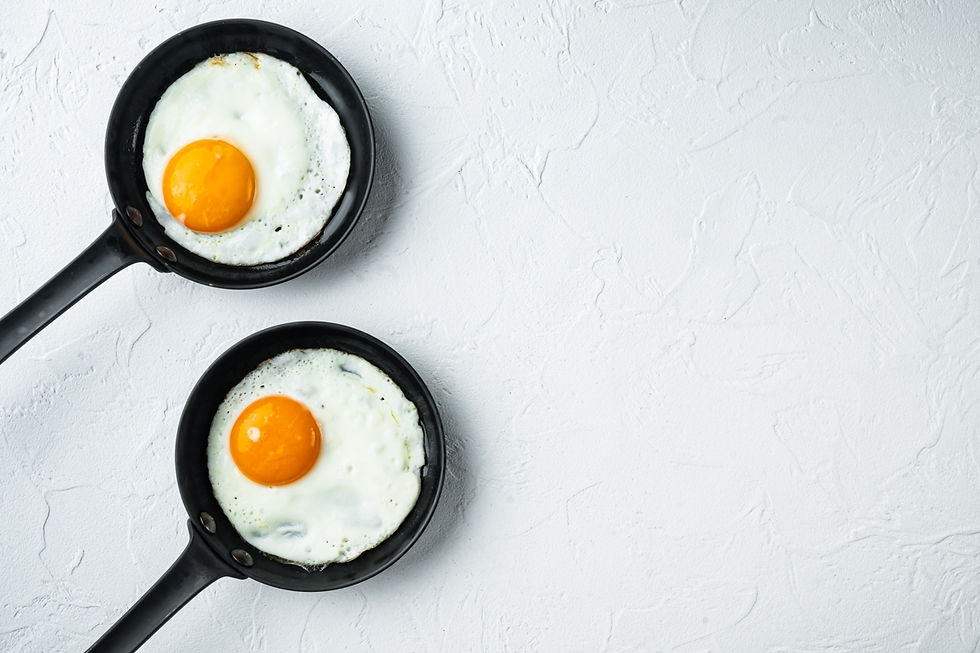Busting the Myth of Cholesterol: What You Really Need to Know
- samsilvester1
- Oct 8, 2025
- 2 min read

For years, cholesterol has been cast as the villain of heart health. Many people still believe that eating foods high in cholesterol—like eggs —directly raises cholesterol levels in the blood and clogs arteries. The truth is much more nuanced, and modern research paints a very different picture.
Do we really need cholesterol?
YES!!! Cholesterol is a waxy substance your body needs to survive. It’s essential for making hormones, vitamin D, and bile acids that help digest fat. In fact, your liver makes most of the cholesterol in your body—much more than you take in from food.
The New Science
For most people, dietary cholesterol has only a small impact on blood cholesterol levels. What matters more is the sugars you eat, liver health, gut health, your overall diet, genetics, stress, sleep, and lifestyle.
Plaque build-up in arteries is about damage, inflammation, and repair gone wrong. Here’s a breakdown:
Endothelial Damage
The inner lining of arteries (the endothelium) can be injured by things like:
· High blood pressure
· Smoking
· Chronic high blood sugar (diabetes, insulin resistance)
· Toxins, stress, oxidative stress
Once that lining is irritated or damaged, it becomes “leaky” and sticky. The body treats this damage like a wound. Immune cells rush in to “clean up” and repair the site.
In the process, they pull in lipoproteins (like LDL) and other substances.
LDL itself isn’t the villain — the problem is when LDL gets oxidized (damaged by free radicals).
White blood cells gobble up oxidized LDL, turning into “foam cells. These clump together and start forming fatty streaks under the arterial lining.
Plaque Formation
Over time, layers of fat, immune cells, calcium, and connective tissue build up.
The body keeps trying to “patch” the damage, which thickens the artery wall. This narrows the artery and stiffens it, reducing blood flow.
Why Cholesterol Is Blamed
Because LDL is part of the plaque, cholesterol got labelled as the main culprit. But really, it’s the oxidation, inflammation, and repeated endothelial injury that start the process.
That’s why two people with the same cholesterol level can have very different risks depending on lifestyle, genetics, stress, and diet quality.
So, Should You Avoid Eggs and Fats?
Eggs are nutrient-dense, packed with protein, vitamins, and minerals, and we need plenty of good fats such as nuts and seeds, olive oil and avocados. The focus should be less on single foods and more on overall dietary patterns—plenty of vegetables, whole foods, healthy fats (like olive oil, nuts, and fish), and minimal processed, sugary foods.
Watch an eminent cardiologist and UK doctor talking about the importance or cholesterol and how few people need statins here



Comments